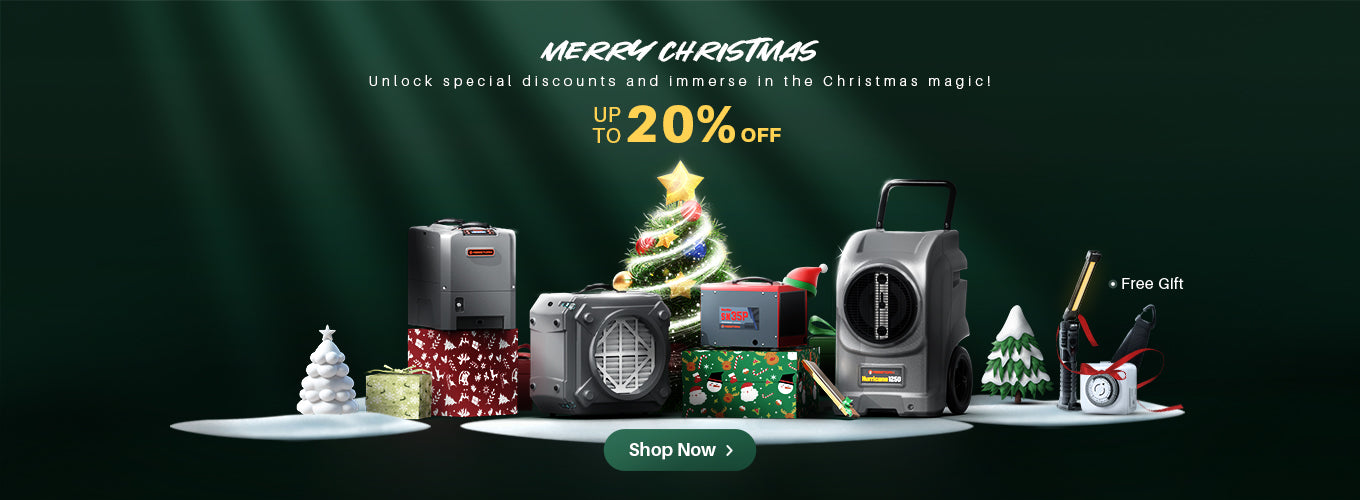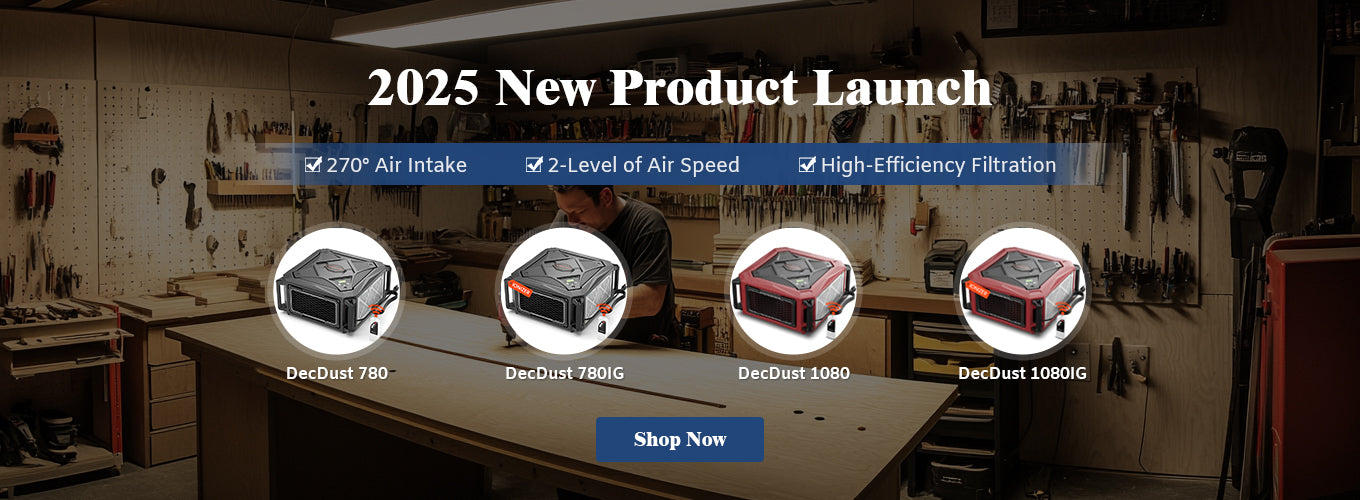Living in a pet-friendly home brings joy, companionship, and emotional benefits. However, it also presents certain challenges, such as managing humidity levels, pet odors, and maintaining overall cleanliness. These factors not only affect the comfort and aesthetics of your living space but also impact the health of both pets and their owners. Humidity can contribute to mold growth, while persistent odors and allergens from pets can affect indoor air quality. Understanding the challenges and exploring solutions will help you create a healthier, more comfortable environment for everyone in the home.
The Health Impacts on Pets and Their Owners
When pets are part of your household, the consequences of poor air quality, high humidity, and lingering odors extend beyond just discomfort. Both pets and their owners are vulnerable to various health issues triggered by these factors.
The Respiratory and Dermatological Impact on Pets
Pets, especially those with fur, are more susceptible to respiratory and dermatological problems caused by poor indoor air quality. Here’s how:
Pets are exposed to the same allergens and pollutants in the air that humans are, including dust mites, mold spores, pet dander, and volatile organic compounds (VOCs). In particular, cats and dogs with asthma or sensitive respiratory systems may suffer from aggravated symptoms like coughing, sneezing, and wheezing. In addition, pets are often closer to the floor, where dust and dander tend to accumulate.
Pets with skin conditions, such as dry skin or allergies, can also be affected by poor air quality. High humidity can worsen skin irritation, causing itching, rashes, and discomfort. Over time, this can lead to more severe issues such as hot spots or infections.
Allergic and Hygienic Concerns for Pet Owners
Pet owners can also face health issues due to pet-related allergens and odors. For many individuals, exposure to pet dander is a leading cause of allergies, leading to symptoms like sneezing, itchy eyes, and congestion. Additionally, pet odors, such as those from urine, feces, and territorial markings, can cause discomfort and even trigger asthma or breathing issues.
Pet dander is one of the most common allergens in homes with animals. Even when a pet is not present, the microscopic particles can remain airborne for long periods, affecting sensitive individuals. These allergens can settle in bedding, furniture, carpets, and other fabrics, causing persistent allergic reactions for owners and guests.
Maintaining hygiene with pets in the home can be a constant challenge. Fur shedding, litter box odors, and general dirt brought in by pets can lead to unpleasant smells and unsanitary conditions. If not regularly cleaned, these hygiene concerns can affect the overall air quality, leading to unpleasant living conditions.
How to Tackle Pet Odors in Your Home—Effective Solutions
Addressing the challenges of pet-friendly homes involves more than just cleaning and managing smells. Below are some practical solutions to create a healthier and more comfortable environment for both pets and their owners.
Common Cleaning Methods
While pet odors are a natural part of living with animals, there are several steps you can take to reduce them and keep your home smelling fresh:
Clean Up After Your Pets
Regular cleaning is key to managing pet odors. Pets can sometimes relieve themselves in areas where they shouldn't, such as on carpets or furniture. It’s essential to clean these areas promptly to prevent odors from building up. Additionally, pets shed hair, which can contain sweat and other odorous substances. A good vacuum cleaner will help you manage shedding and keep your home clean.
Bathe Your Pets Regularly
Just like humans, pets need regular baths to prevent body odor. Use a gentle, pet-friendly shampoo and ensure they are completely dry afterward. Bathing your pets helps control the release of oils and sweat that contribute to odor. Also, don't forget to clean their accessories—leashes, toys, bowls, and bedding—as these can also retain smells.
Train Your Pets
Proper training can help reduce accidents and prevent pets from marking their territory inside the house. Encouraging your pets to relieve themselves outdoors can significantly cut down on the odors in your home.
Declutter Your Home
A cluttered home can exacerbate pet odors, as it prevents proper airflow. By clearing away unnecessary items, you’ll improve air circulation and make it easier to keep your home fresh. After decluttering, clean the surfaces and open windows to let fresh air circulate.
Visit the Vet
If your pet's odor becomes particularly strong or unusual, it may be time to consult a veterinarian. A change in diet, or an issue with their anal glands or overall health, can cause more potent smells. A vet will be able to identify the source of the odor and recommend appropriate treatment.
Use Conventional Air Fresheners
Air fresheners can help mask pet odors temporarily. Spray air fresheners or plug-in diffusers can be effective in neutralizing smells. However, be cautious with strong sprays, as they can sometimes cause irritation or breathing difficulties, especially for sensitive individuals.
Try Non-Conventional Air Fresheners
If you prefer a natural approach, consider using baking soda or essential oils. Baking soda is an excellent deodorizer that absorbs odors. You can place it in an open container or sprinkle it on surfaces like carpets before vacuuming. Another option is to create a DIY air freshener by combining baking soda with a few drops of essential oil in a jar and then covering the jar with a paper towel or cloth.
Give Your Pet More Outdoor Time
If pet odors persist despite your efforts, giving your pet more outdoor time can help. Creating a comfortable outdoor space, such as a pet shelter, can allow your pet to enjoy some fresh air while keeping your indoor environment more breathable. Just be sure to address the odors inside your home as well.
More Effective Solutions: Air Scrubbers and Dehumidifiers
While regular cleaning, ventilation, and air fresheners can help manage pet odors to some extent, they often fall short in addressing the underlying causes of persistent smells and allergens. To truly tackle the root of pet odors and ensure a healthier living environment, consider more effective solutions like air scrubbers and dehumidifiers. These tools not only improve air quality but also help create a more comfortable and breathable space for both pets and their owners.
Air Scrubbers: Clean Air, Cleaner Home
Air purifiers clean the air of pollutants, allergens, and volatile organic compounds (VOCs), many of which are present in pet-related odors. Here are a few options:
1. HEPA Filters for Pet Dander: Air scrubber with HEPA filters are highly effective at capturing tiny particles such as pet dander, dust and mold spores. Pet dander is a major allergen that can remain in the air for long periods of time, causing discomfort for both pets and humans. A HEPA-equipped air scrubber captures these particles, dramatically improving indoor air quality.
2. Activated Carbon Filters for Odor Removal: Some air scrubbers also come with activated carbon filters, which are excellent at absorbing gases, chemicals, and odors. This feature helps to eliminate pet odors such as urine, wet fur, and territorial markings, preventing them from lingering in the air and on surfaces. As a result, you can enjoy a fresher, cleaner home environment without the need for harsh air fresheners.
3. CONTINUOUS AIR PURIFICATION: Air purifiers continuously filter and purify the air, reducing the long-term accumulation of pet allergens and odors. Unlike air fresheners, which only mask odors, air purifiers get to the root of the problem by capturing harmful particles before they can spread throughout your living space.
Dehumidifiers: The Key to Reducing Humidity and Odors
High humidity levels in your home can create the perfect breeding ground for mold, bacteria, and dust mites, which in turn worsen indoor air quality and exacerbate pet-related health issues. Here's how a dehumidifier can help manage humidity and improve the overall environment:
- Prevent Mold and Bacteria Growth: Dehumidifiers reduce excess moisture in the air, making it harder for mold and bacteria to thrive. Mold, in particular, is a common cause of unpleasant smells in pet-friendly homes, especially in areas where pets tend to urinate or where dampness is an issue. By maintaining a lower humidity level, a dehumidifier helps prevent these growths and the associated odors.
- Improve Respiratory Health: High humidity can aggravate respiratory issues in both pets and their owners. Pets with asthma or other respiratory conditions may experience more discomfort in humid environments. Dehumidifiers help regulate humidity levels, creating a more comfortable atmosphere for breathing.
- Reduce Allergens: Dust mites, which are another common allergen found in pet-friendly homes, thrive in high humidity. By keeping moisture levels in check, dehumidifiers minimize dust mite populations, making the air cleaner and healthier for everyone in the household.
The Power of Combining Air Scrubbers and Dehumidifiers
Using both an air scrubber and a dehumidifier together maximizes your ability to manage both air quality and humidity levels.
While air scrubbers tackle airborne particles and odors, dehumidifiers prevent the growth of mold and bacteria that can lead to musty smells. Together, these devices help keep your home’s air fresher and cleaner by addressing both the source of the odors (pet dander, VOCs) and the conditions that allow them to spread (high humidity).
With consistent air purification and optimal humidity control, you create a healthier environment that supports better respiratory health for both pets and owners. Whether it’s reducing allergy flare-ups or preventing fungal growth in pet areas, these devices help reduce the risk of health problems caused by poor indoor air quality.
The combination of an air scrubber and a dehumidifier reduces the need for frequent cleaning and maintenance, ultimately saving time and effort. Over time, these devices can also help preserve the condition of furniture, floors, and other household items that are prone to damage from moisture and allergens.
Conclusion: Achieving a Healthier, More Comfortable Home for Pets and Their Owners
Living in a pet-friendly home can bring a lot of joy, but managing the challenges associated with humidity, odors, and allergens requires attention and effort. By cleaning regularly, maintaining proper ventilation, and using products like air scrubbers and dehumidifiers, you can create a more comfortable, healthier environment for both your pets and yourself.
Investing in air purifiers and dehumidifiers helps you address the root causes of pet odors and improve air quality, ensuring that your home remains a pleasant and safe space for everyone. A few small changes can make a big difference in the quality of life for both pets and their owners—creating a truly harmonious home.







